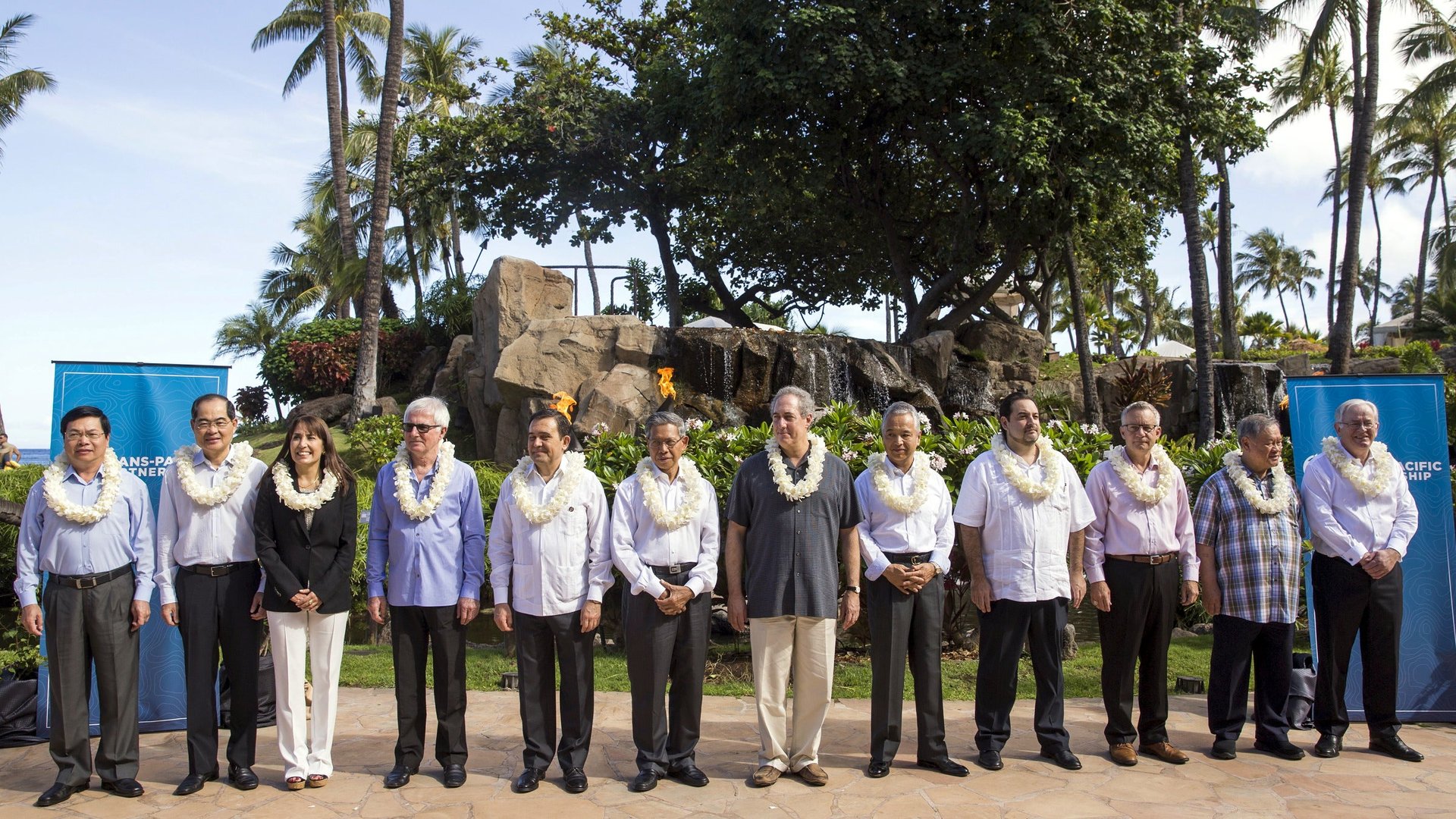The drug company give-away killing the world’s biggest trade deal
After ministers from the 12 nations negotiating the Trans-Pacific Partnership failed to make a deal last week during a Hawaii summit portrayed as the concluding round, the fate of the controversial trade-liberalization effort is back in jeopardy.


After ministers from the 12 nations negotiating the Trans-Pacific Partnership failed to make a deal last week during a Hawaii summit portrayed as the concluding round, the fate of the controversial trade-liberalization effort is back in jeopardy.
Some sticking points include opening up North American markets to New Zealand’s powerhouse dairy industry, and exactly how much of a car needs to be produced in a TPP country to qualify for market access. But the biggest flashpoint in the talks is a US proposal to protect drug companies from competition.
The key conflict is over a US law allowing companies that manufacture complex drugs developed from micro-organisms, like Humira, the best-selling arthritis treatment developed by AbbVie, to keep data from their clinical trials secret for 12 years. This raises the costs for companies seeking to develop cheaper, generic versions of these treatments, while allows drugmakers to wring maximum profits from their investments in research.
Almost every other country involved in the talks opposes making this rule the global standard. Australia and New Zealand have reportedly proposed five years as a suitable time for exclusivity, while Japan is backing a compromise position of eight years.
It’s worth noting that, domestically, the Obama administration has repeatedly proposed moving the exclusivity period to seven years, saying it would save US public health insurance $1.6 billion a year in pharmaceutical costs. These proposals have failed in the face of Big Pharma’s lobbying might.
Though US negotiators have used trade talks to shift American laws before—indeed, concern that the trade talks are an end-run around domestic legislatures is driving much of the opposition to the TPP—Obama’s trade negotiators appear to be holding fast to the 12-year limit currently on the books.
The pharmaceutical industry has been a major backer of the trade deal in the US, actively lobbying for the IP protection that representatives say is essential to innovation—and that are clearly a direct line to higher profits. At the same time, the industry has ignited political controversy, as many firms seek to expatriate themselves to avoid US taxes.
Protecting strong sectors seems like a no-brainer for US negotiators—American regulators may approve (paywall) half a dozen new biologics this year, and the drugs already make up about a quarter of pharmaceutical company revenues—but if the cost is losing the entire trade deal, they may be forced to reconsider their stand on data protection.
With all the criticism, it would be ironic indeed if the TPP wound up reducing US intellectual property protections on expensive drugs, rather than seeing them enshrined as an international standard.
Time is of the essence to ratify the deal as elections approach in Canada, the US, and Japan. Critics of the TPP say the delay in negotiations is a sign that its backers have over-promised when it comes to the deal’s benefits.
While the Obama administration managed to scrape out an important win earlier this year, gaining powerful authority to reach a trade agreement and fast-track it through the legislature, it won’t matter if there’s no deal to put before Congress.